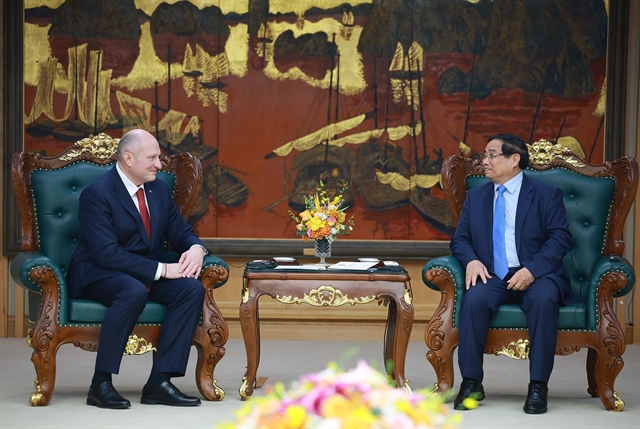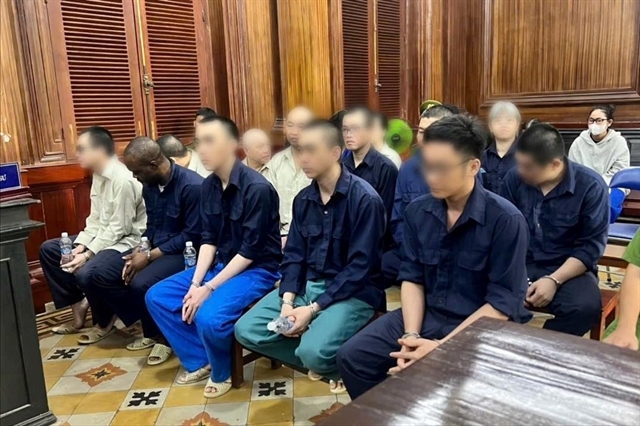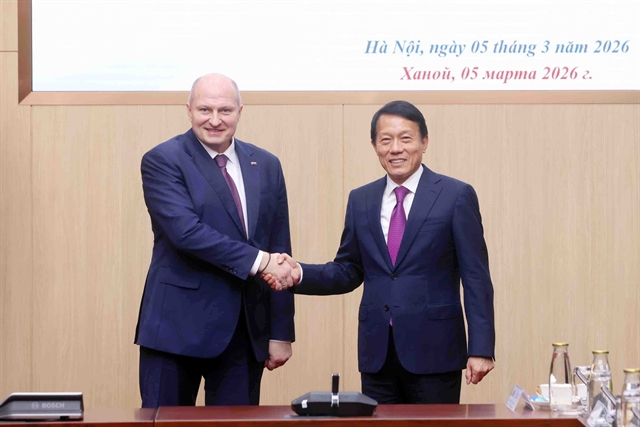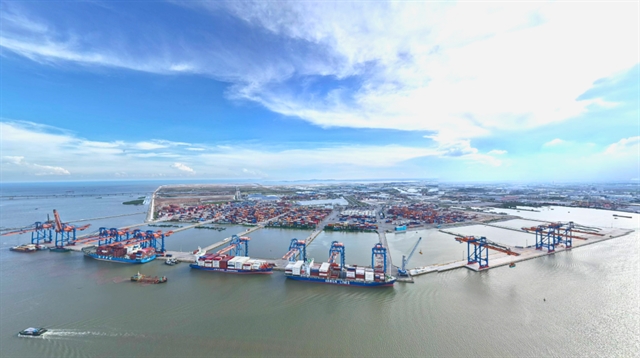 Economy
Economy
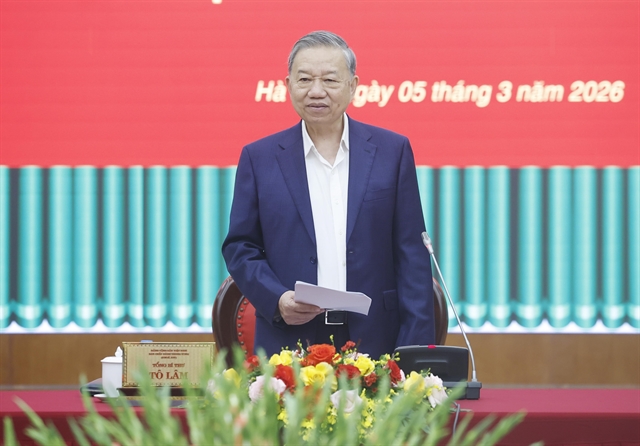
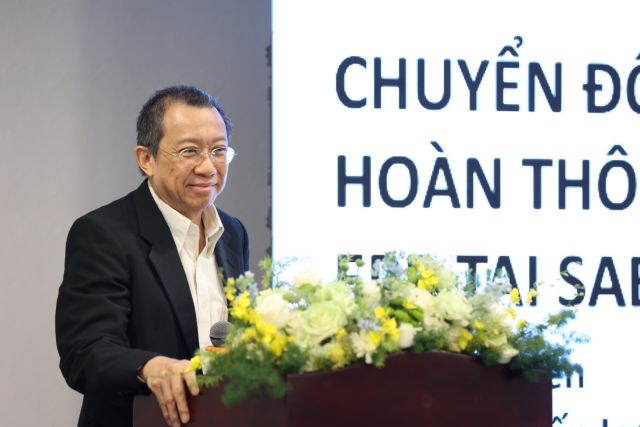
|
| Larry Lee, SABECO's Deputy General Director of Strategic Assets and Sustainability delivered a speech at the forum. — VNS Photo |
HÀ NỘI — Saigon Beer – Alcohol – Beverage Corporation (SABECO), one of Việt Nam’s leading beverage producers, is redefining the role of Extended Producer Responsibility (EPR) as more than a regulatory obligation — positioning it as a strategic driver of circular transformation.
Speaking at the forum “Green Packaging Forum: EPR Journey Towards Sustainable Value" held by Việt Nam News and Law Newspaper on Friday in HCM City, Larry Lee, Deputy General Director of Strategic Assets and Sustainability, said SABECO’s approach goes “beyond packaging compliance,” viewing EPR as a lens to “reimagine packaging, rethink waste, and rebuild value together.”
Founded on more than 150 years of brewing heritage, SABECO today operates 25 breweries and 11 trading companies, with products present at over 200,000 sales points nationwide. “That scale comes with responsibility,” Lee said, adding that EPR is “not the end of the process, but the starting point of transformation” in how the company produces, consumes and collaborates.
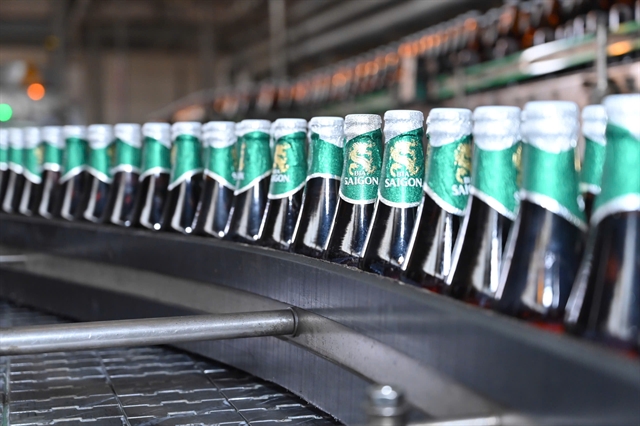
|
| A beer production line at SABECO. The company has ensured that 100 per cent of its primary and secondary packaging is now reusable or recyclable. —Photo courtesy of SABECO |
Rethinking packaging from the start
SABECO’s circular journey begins at the design stage. The company has ensured that 100 per cent of its primary and secondary packaging is now reusable or recyclable. A significant milestone was the decision to reduce the aluminium coil thickness in its cans from 0.245mm to 0.240mm — a seemingly small adjustment that cut material weight by 15 per cent, saving emissions, transport energy and costs.
In addition, SABECO has rolled out closed-loop recycling models for glass, aluminium and cartons, aiming to embed circularity “into every touchpoint.” The company has set a target that by 2040, all beverage packaging will meet reusable and recyclable standards.
For SABECO, what happens after consumption is equally important. Waste management is the second pillar of its EPR strategy, built on a hierarchy of prevention, reduction, reuse, recycling, recovery and disposal.
In 2024, more than 64 per cent of the company’s waste was diverted from landfill. All spent grains and waste yeast from brewing were reused as animal feed, while over 1,800 tonnes of sludge from wastewater treatment systems were converted into organic fertiliser, benefiting Vietnamese farmers.
“At SABECO, waste is not just managed — it is transformed into value,” Lee said, noting that circularity starts with redefining what waste means.
The third pillar of SABECO’s strategy is partnership. In 2023, the company joined the Packaging Recycling Organisation Việt Nam (PRO Vietnam) to work with industry peers on scaling EPR nationwide. It also collaborates with the Ministry of Agriculture and Environment and EPR platforms to implement the 2020 Environmental Protection Law from factory floors to community initiatives.
SABECO has also integrated public engagement into its EPR approach. All packaging now carries age restriction warnings and “Don’t drink and drive” messages, while nationwide campaigns on responsible drinking and waste separation have reached millions.
“To us, EPR is not a back-end process,” Lee said. “It is a front-facing expression of our values — visible, measurable, and trusted.”
In 2024 alone, SABECO cut cap usage by 22.61 per cent, reduced rice consumption by 2.29 per cent, and lowered greenhouse gas emissions by 9.3 per cent through its EPR and environmental, social and governance (ESG) initiatives.
These efforts have earned the company a place among the Top 100 Sustainable Businesses recognised by the Việt Nam Chamber of Commerce and Industry’s Corporate Sustainability Index (VCCI CSI) and the 100 FMCG Asia Award 2024 for ESG-integrated consumer experience.
“Sustainability is a way of doing business,” Lee said. “EPR is not the finish line — it’s the starting line. If approached strategically, it can create systems that are not only more efficient but more meaningful, building a greener future and a stronger, more trusted Vietnamese company.” — VNS

